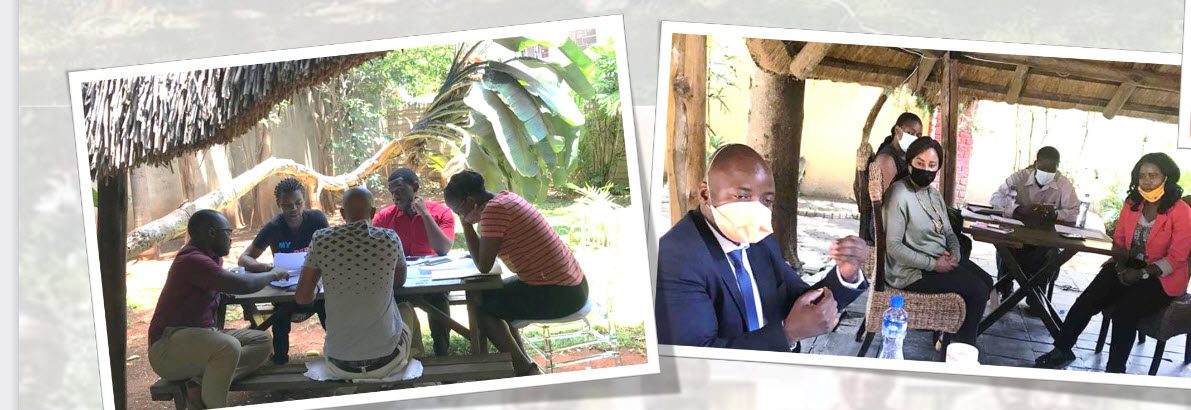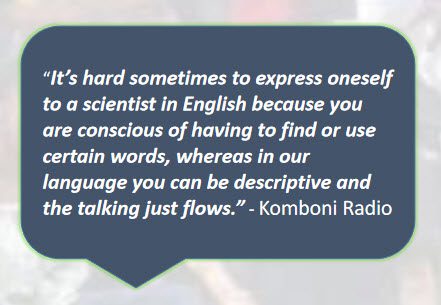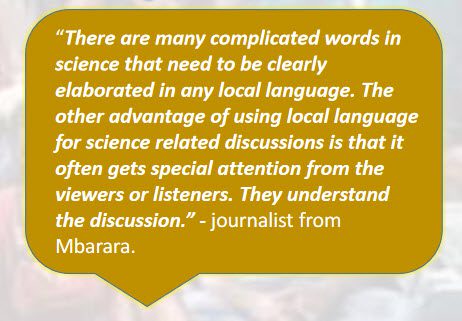Compiled by Bea Spadacini
The language of science in the language of trust: Internews program for journalists reporting on HIV pivots to deliver essential information about HIV services in mother tongue. The Media Science Café program was presented by Ida Jooste, Senior Global Health Advisor for Internews and HJN member Daniel Aghan, CEO of MESHA Kenya.

Background
The Media Science Café Program in East and Southern Africa in four priority countries for HIV prevention seeks to create an enabling environment for HIV science to thrive through media convenings which equip cadres of health journalists with the knowledge, skills and networking opportunities to report HIV clinical and social science accurately. Hosted by health journalism associations Media for Environment, Science, Health and Agriculture (MESHA, Kenya), Health Journalists Network of Uganda (HEJNU, Uganda), Media Science Café (MESICA, Zambia) and Humanitarian Information Facilitation Centre (HIFC, Zimbabwe), these convenings, dubbed cafés, serve as regular information exchange zones between scientists, civil society and journalists aimed at unpacking HIV Research & Development progress.
Descriptions
The science literacy and social science competencies learnt and developed at media science cafés mean journalists are able to translate complex science (for example antibody-mediated prevention, innovation in vaccine science platforms, etc.) to their audiences. Moreover, an appreciation of clinical science principles helps them pre-emptively counter misinformation and harmful narratives that can stem from a misunderstanding of R&D processes. A program innovation to intentionally provide a second layer of science translation into mother tongue languages – intensified the café program’s reach and impact with attendees reporting increased ability to report in ways that fostered trust in health information and created product demand.
Lessons Learned
Jargon-free, but now also into first language, science translation at a hyper- local level means that essential information about communicable disease interventions can be broadcast on vernacular radio stations in Dholuo, Teso, Luhya, Giriama, Luganda, Runyankore, Acholi, Bemba and Shona in rural Kenya, Uganda, Zambia and Zimbabwe respectively – languages which evoke familiarity for media audiences residing in geographies of high HIV incidence. This meets the need that indigenous populations are exposed to and participate in media conversations that enable them to make better health choices. See more lessons learnt from interviews conducted with Media Science Café
participants below.

Audience response to local language content: In Zimbabwe, a story on the Dapivirine ring – published unusually in Shona and not English – elicited much more audience response than usual. Increasingly, journalists in Zimbabwe are demanding local translation from research scientists or sound bites are sources in Shona, to help audiences better relate to the content.

Local language used by experts to help journalists translate science: A local language café held in Western Uganda resulted in increased interaction and engagement by the journalists, indicating language plays a role in helping journalists engage with the science.
Conclusion
Research by Trusting News shows a direct relationship between the relatability of news and trust. The role of vernacular language in building trust is also well documented. Consequently, local language convenings will be expanded in the media café program to increase access and comprehension and foster buy-in and demand for essential HIV services.